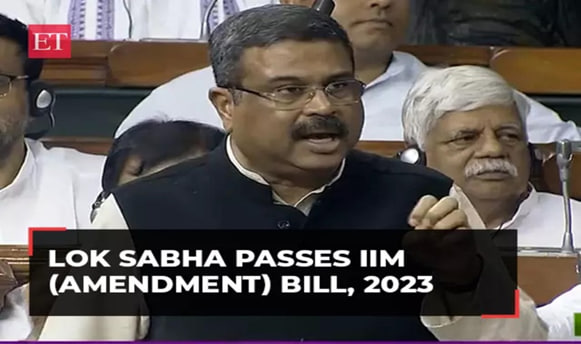Express View on IIM bill: Mis-management
Last week, the Lok Sabha passed a Bill that gives the government greater say in the appointment and removal of directors of the Indian Institutes of Management (IIMs). The legislation is a significant — and unwelcome — departure from the IIM Act, 2017, which declared these elite management schools as “institutions of national importance with a view to help them attain standards of global excellence”. It had empowered the board of governors to appoint the director of an IIM on the basis of the recommendations of a search-cum-selection committee.
The new legislation subordinates the boards to the IIMs’ Visitor, the President, virtually giving the government veto power in the appointments. The chairperson of the board, hitherto appointed by its other members, will be nominated by the Visitor if the Bill becomes law. The government will also prescribe conditions for the suspension or dissolution of the IIM’s board. Other powers of the Visitor also come at the expense of the institution’s autonomy — the President can, for instance, institute inquiries and issue directives which will be binding on the IIM management.
Replying to the debate on the Bill, Education Minister Dharmendra Pradhan said that the government will not interfere in the functioning of the IIMs. But his words do not appear persuasive given his ministry’s uneasy relationship with these institutions in the past eight years. In 2015, the education ministry envisaged sweeping powers for the government in IIM management — this included making the President the Visitor and giving the Centre a say in the appointment of the board.
To its credit, the PMO overruled the ministry’s plans. Then, in 2020, the ministry had objections to the IIM describing its one-year post-graduate programme as MBA — as is the global norm — saying this went against UGC rules. A year later, IIM-Ahmedabad refused to accede to an education ministry directive to review a doctoral thesis that described the BJP as a “pro-Hindu upper caste party”.
